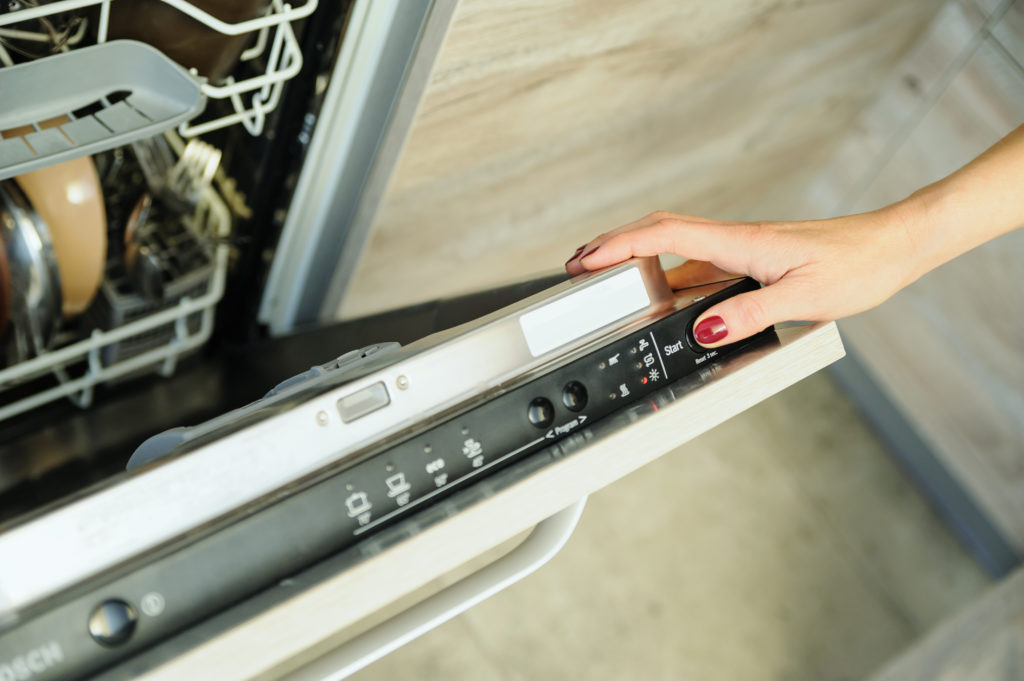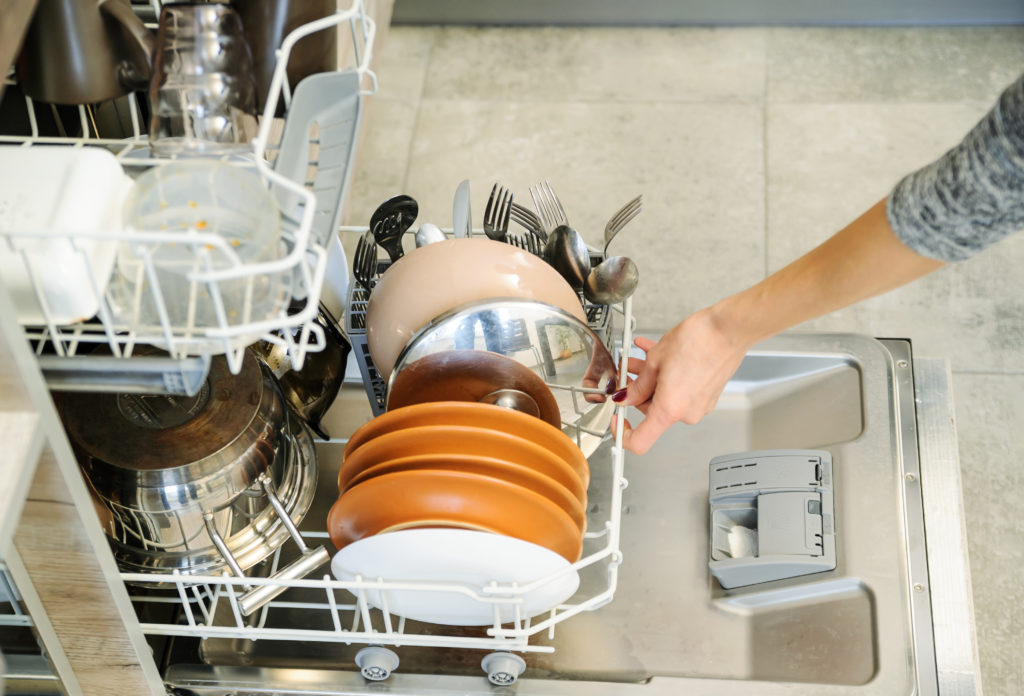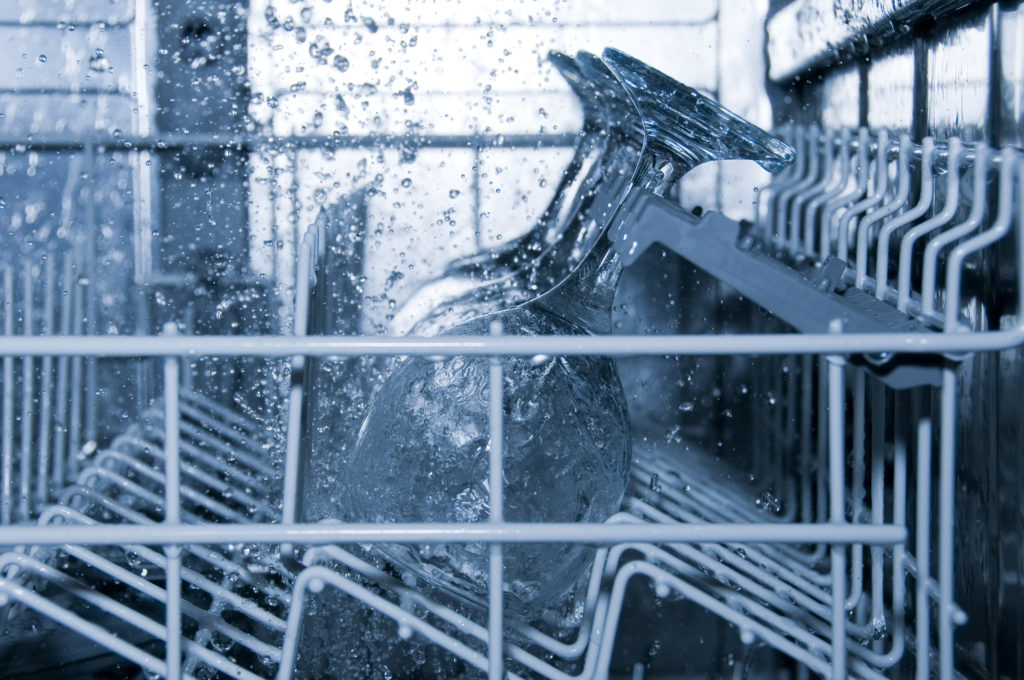Common Dishwasher Problems and Solutions
- Home /
- News & Advice /
- Common Dishwasher Problems and Solutions
- December 10th, 2009
- 17 Comments
- Posted in dishwashing
If your dishwasher isn’t working properly, you’ll soon start to realise how much you rely on it in your day-to-day life.
A dishwasher takes away the need to spend hours washing pots and acts as a small luxury for your home. But what happens if it suddenly breaks down and you’re in urgent need of a fully-functioning one?
Although it may cause concern, many dishwasher faults have easy solutions that don’t warrant an engineer visit to complete the repair.
Whether you’ve got a Siemens dishwasher, Neff dishwasher, or any other brand, the most frequently reported problems are the same. We’re here to share some of the most common dishwasher problems and how to resolve them quickly.
Please remember that dishwashers should always be turned off at the mains before attempting to carry out a repair!
Why won’t my dishwasher drain?
If your dishwasher won’t drain, you may be left with a small pool of water in the bottom of the machine after a completed cycle. This can happen for a few reasons, but there are two main causes.
The first is that the filters in the machine could be clogged. These are usually found in the base of the machine and can be kept in good condition by regularly clearing any dirt or grime away from the area and keeping it free of debris.
If the filters are clear, the fault may lie with the drain hose being blocked. To check that this is clean, try disconnecting the drain hose and blowing through it to clear out any old food.
Why is my dishwasher not drying dishes properly?
If the dishes in your dishwasher are stacked on top of each other, they won’t get clean. Ensure that the your dishwasher has been loaded correctly to make sure that water and steam can move freely around the machine and properly clean and dry your dishes.
If you’re sure that you’re loading your dishwasher properly but the dishes still aren’t drying, the amount of rinse aid you are adding may be the reason.
Rinse aid is specifically designed to ensure that your dishes dry properly once the dishwasher has completed its cleaning cycle. It works by breaking the tension of water on the surface of your dishes, which then makes the evaporation process more effective and helps dishes to dry properly.
Why is my dishwasher not heating effectively?
The heating element of your dishwasher may be the reason why it is not heating properly, and therefore not properly cleaning your dishes.
This element is visible in the tub and controls the temperature of water being injected into the machine. If your dishwasher is not heating effectively, then the heating element may be broken or suffering from an electrical fault.
If this is the case, the machine will require attention from a qualified engineer and a repair must be completed by an electrician.
Why is my dishwasher not filling with water?
If the anti-flood protection has been activated on your machine it may not fill with water, however this can usually be fairly easily repaired at home.
To reset your anti-flood switch, first remove the kickback (the narrow piece of wood that separates your cupboards from the floor) from beneath the dishwasher door. You’ll then need to remove the screws from the base cover of your dishwasher to gain access to the reservoir, which will be filled with dirty water.
From there, drain the water using an absorbant cloth or sponge and pull the switch that was floating on the water back down into contact with the base. Once you re-seal your dishwasher and turn the power back on, it should work.
If this isn’t the case, there may be a blockage between the water pump and dishwasher tub. This can be fixed by removing the spray arms and running the dishwasher for a short amount of time to clear blockages.
Why is the cleaning quality of my dishwasher poor?
Your dishwasher may not be cleaning dishes properly due to incorrect loading.
If you are sure that you’re loading dishes correctly but it’s still not getting them properly clean, try washing the dishes on a longer cycle or at a higher temperature with a stronger washing detergent.
If you have done this, and are still experiencing the problem, then the symptom is harder to diagnose without an engineer stripping down the appliance. If this is the case, contact us for help.
Why does my dishwasher make my glasses cloudy?
In areas with hard water, limescale build-up can be a cause of cloudy glassware. It is recommended that you experiment with the dosage of rinse aid your appliance dispenses until you find a setting which suits your requirements and produces better results.
Bear in mind that glasses can take on a cloudy appearance over time regardless of water hardness, thanks to etching or corrosion. To minimise the effects of this, make sure that your glasses are dishwasher safe before loading them.
Why does my dishwasher make my cutlery rusty?
This issue is usually caused when the cutlery has been in contact with acid or salt for a long period of time, for example tomato ketchup or lemon juice can produce this issue. Rinsing any cutlery that has been in contact with acidic or salty food before you load it in the dishwasher will help to stop this issue from occuring.
Why is my dishwasher making noise?
A noisy dishwasher can usually be put down to a faulty or blocked drain pump. Disconnecting the pipe and blowing through it could clear this out and solve the problem. However, the type of noise your dishwasher is making is also important to note.
If it’s a grinding noise, there might be something stuck in the blade area of the dishwasher, if it’s a sqeak, the bearing in the wash pump motor might be rusting. Your integrated dishwasher will also make unusual noises if it’s not securely fastened to the cabinet.
Why is my dishwasher tripping electrics?
If your dishwasher is causing your electrics to trip, this can indicate that the heater in the machine is broken. This would require the attention of a professional engineer.
Why is my dishwasher leaving white film on my glasses?
If your dishwasher is leaving white film on your glasses, then it usually means that the salt dispenser in the machine is broken and will need replacing.
If this article has not helped you to diagnose the issue with your dishwasher, or you are unable to fix the problem on your own, book a dishwasher repair engineer today. Our friendly, knowledgeable team are always ready to help!
Comments
margaret hennessy
Saturday, September 1, 2018 at 9:49 pmim at a loss. ive cleaned the dishwasher out several time, the impellor goes around, water enters the machine, it goes through the motions to the end. but . the arms wont go around in the machcine, so theres no cleaning. i have 4 chi9ldren plus 1 husband plus a headache that wont go away. [please help. my husband had a go too, with no luck sm65e000gb siemens integrated
thank you for reading this margaret i look forward to hearing from you
Rita
Friday, October 19, 2018 at 10:50 amWhere I have to put salt into machine it is full of water is this correct.
Many thanks for you help
Merilyn Gehrke
Wednesday, December 26, 2018 at 8:43 pmI have never been so disappointed with a dish washer as I am with my Haier. At the moment I am finding it difficult to turn off the child lock. It is also not filling properly, I have had to do all my Christmas washing up by hand; just when one needs the extra help! From new it has never been as good as my previous one. Perhaps I have just got a lemon!? When I try to download the instructions, it is blocked by the anti virus. HELP
Rosie Cole
Monday, April 1, 2019 at 7:19 amI’m so worried about dishwasher I had water on the floor two days ago I put it on yesterday and it didn’t work. I tried to put it on again and red light kept flashing. I have tried again this morning and it started ok but it doesn’t seen to be right I’m worried now because if I switch it off there will be water in it. I don’t know what to do
MGlotech
Tuesday, April 2, 2019 at 6:10 pmHi
If your dishwasher is leaking it might well be going into the base which will cause the machine to produce an error. Normally a dishwasher will not start if it thinks there is water in the base. You should also check your drain to make sure it is not overflowing.
Generally if your dishwasher has leaked once it will do so again if the cause has not been corrected so it is probably best to get an engineer to look at it.
If the product leaked out of the front it could well have overfilled or have a problem with the spray arm.
MGlotech
Monday, April 15, 2019 at 3:47 pmYes, there is always water in the sump of the dishwasher so when you fill the salt (which sinks) the water overflows the chamber. This is nothing to worry about.
MGlotech
Monday, April 15, 2019 at 3:59 pmIt depends on what the white residue is, if it is salt it will wash off easily with water, if it is limescale then it will dissolve off in vinegar.
If it is salt then you need to look at whether the salt cap is screwed on correctly, whether it is cracked or broken, the salt dispenser might be releasing the wrong amount of salt or the dispenser might be faulty.
If it is limescale the salt might not be releasing properly as the water is not being softened or the regeneration unit might be faulty resulting in the water not being softened.
Yvonne
Monday, July 1, 2019 at 5:13 pmWhy won’t my dishwasher take the tablet?
MGlotech
Tuesday, July 9, 2019 at 8:43 amThere could be a problem with the dispenser, that is the first thing to check.
Beryl Richards
Friday, July 12, 2019 at 9:25 pmi am finding the dishwasher tablet discarded in the base of my Bosch dishwasher once the wash cycle is completed. My cups are left with tea stains. This has suddenly started happening at every wash. Can it be fixed?
MGlotech
Monday, July 15, 2019 at 9:04 amThis could be the top spray arm not rotating or spraying. Normally the product would show an error code if the diverter is not supplying water to the top spray arm so make sure that the holes are not blocked and nothing is stopping the arm spin round.
Claire
Friday, August 2, 2019 at 4:16 pmWhy does my dishwasher leave black mould and dies not dry dishes
MGlotech
Friday, August 9, 2019 at 4:14 pmIs the dishwasher getting hot? If not then the heater is not killing the mold and it will not dry properly.
Michael
Wednesday, May 20, 2020 at 4:41 pmNeff dishwasher, stopped working ,showing error sign E.01. What does it mean?
Adrian
Sunday, May 24, 2020 at 1:17 pmOur Neff integrated dish washer is bleeping when door is open. It has finished its wash cycle. cna you advise what I need to do. Thanks
Elie khawand
Tuesday, January 26, 2021 at 11:57 amDishwasher do not work, it makes an eagle sound, as if it is unable to twist
Leave a Reply





Kate Harrison
Wednesday, July 11, 2018 at 3:50 pmDishwasher Neff is leaving white film Have used a dishwasher cleaner the hottest cycle. Feel maybe salt dispenser is at fault.?